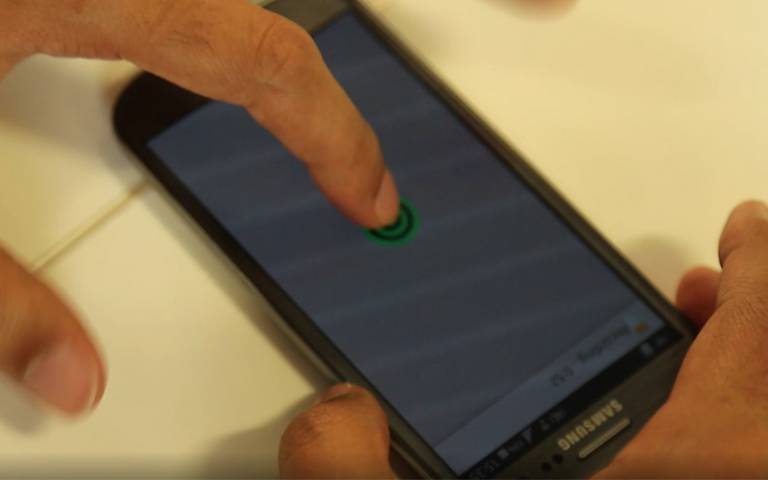New app to monitor Parkinson’s progression at home
3 January 2021
A new smartphone app developed by researchers at UCL and Birkbeck, University of London, is enabling doctors to remotely monitor their patients’ progression of Parkinson’s symptoms, as reported in a new clinical trial.

The findings, published in npj Parkinson’s Disease, show that the app can provide clinicians with a more complete picture of a person’s condition than they can get from a typically brief medical check-up.
Lead researcher Dr Ashwani Jha (UCL Queen Square Institute of Neurology) said: “Parkinson’s disease is highly variable, as it can progress at very different rates in different people, who will not all experience the same symptoms. For that reason, people with the condition need regular check-ups, often about twice a year, so that doctors can monitor the progression of their symptoms and update their treatment plan.
“One challenge of these regular check-ups is that symptoms can vary day-to-day, and even throughout the day, so getting a snapshot when a person visits the clinic will not always give the full picture of their condition.
“Using an app to track symptoms from home, with multiple readings over a longer period of time, could more effectively capture fluctuations in symptoms.
“Assessing physical symptoms has been particularly challenging during the COVID-19 pandemic; monitoring patients remotely could enable high-quality care while maintaining social distancing.”
The app, called cloudUPDRS, was developed by a team of computer scientists and clinical researchers, working alongside people with Parkinson’s disease, who regularly provided feedback to ensure the app was user-friendly. The scientists employed machine learning to train the app.
The app, developed by a group of Birkbeck researchers led by Professor George Roussos, is certified as a medical device under EU regulations. It includes both self-assessment questions and physical tests, enabled by the smartphone’s movement and touch sensors, to measure symptoms such as tremors and gait.
For the study, 60 people with Parkinson’s disease used the app to measure their symptoms, and they were also assessed by three different clinicians. In total, the study participants completed 990 tests on the app.
The app yielded a similar assessment as the doctors 70% of the time, based on a standardised rating scale for different physical symptoms of Parkinson’s. The researchers were also able to improve this to a 79% accuracy by modifying the app’s scoring, based on the results of the trial. While the app’s performance does not quite match that of clinicians, one advantage is that the app may be more objective as it is not subject to biases between different clinicians.
Professor Roussos said: “Digital biomarkers developed using mobile and wearable technologies offer novel opportunities for disease management, especially in Parkinson’s, which sets distinctive challenges due to its complex presentation and high symptom variability. Nevertheless, before such technologies can be adopted widely, we must control for the additional sources of variability in measurement related to device and algorithm selection. In the study, we adopted an approach based on open sharing of software which we hope will foster wider sharing of practices and help establish digital endpoints for Parkinson’s as trusted clinical tools.”
The researchers are continuing to refine the app and are planning a larger trial to help determine how the app could be integrated into clinical practice.
Links
- Research paper in npj Parkinson’s Disease
- UPDRS website
- Dr Ashwani Jha’s academic profile
- UCL Queen Square Institute of Neurology
Image
- Finger tapping test on cloudUPDRS app
 Close
Close

